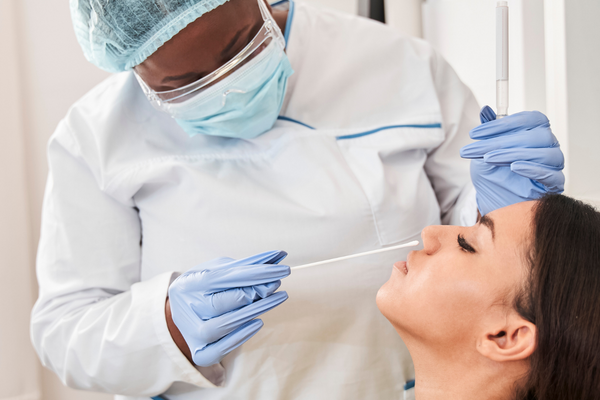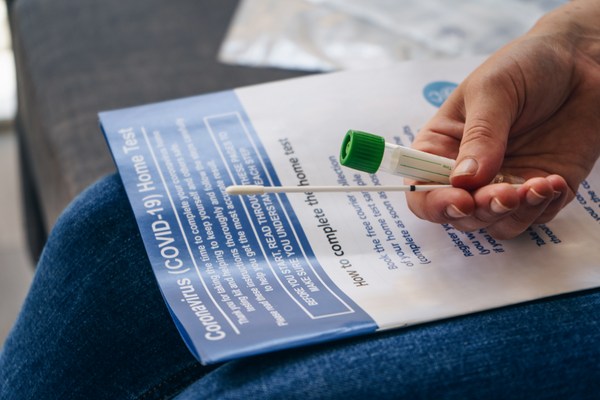Using a social marketing lens to examine employers’ experiences with COVID-19 testing
Social marketing uses commercial marketing principles (e.g., solving a customer’s problem with a product or service) to achieve socially beneficial ends, such as health and safety.
Building upon previous research, Dr. Claudia Parvanta, a USF College of Public Health professor who specializes in social marketing and health communication, and colleagues helping the Centers for Disease Control and Prevention’s National Institute for Occupational Safety and Health (CDC/NIOSH), interviewed company leads across the United States about their experiences and perceptions of COVID-19 testing.
Testing was promoted early in the pandemic as a critical tool to ensure workplace safety.

The study, “In Search of a Value Proposition for COVID-19 Testing in the Work Environment: A Social Marketing Analysis,” was published in September in the journal IJERPH.
“In reviewing qualitative data from the original study [which looked at barriers to COVID-19 testing among U.S. employers], I saw repeated comments about COVID-19 testing products,” Parvanta said. “There were comments about the tests and their costs, accessibility [the study was conducted in early 2021, before rapid tests were widely available] and how the testing had been communicated from state and federal agencies to employers and then their workforce. I suggested we reanalyze the data using a social marketing framework: product, price, place and promotion—the so-called four Ps of social marketing.”
What Parvanta and her colleagues found was that employers felt that PCR testing for COVID-19, which requires a reading from a lab, had a poor “value proposition.” In other words, noted Parvanta, the benefit of testing—which was being able to return to work quickly if results were negative—was negated by a variety of factors, including the time it took to get PCR test results, its uncomfortable administration, the logistical arrangements necessary for worksite use and the lingering positivity in individuals who no longer were infectious or experiencing symptoms.

“COVID-19 testing has evolved since the study was done,” Parvanta acknowledged, “and now anyone should be able to acquire a home antigen test kit. The larger issue from a workplace health perspective is using these results, which have a high false-negativity rate, to allow employees who had COVID-19 to return to work and trust that employees administering the test at home are getting accurate results. Our study suggested that communications about testing, or any mitigation tactics, could be targeted to industries based on how employees perceived their risk of exposure to air-borne diseases.”
According to Parvanta and her colleagues, this is the first study to apply a social marketing approach to employer experiences and perceptions to COVID-19 testing.
“Besides providing a detailed snapshot about this period in the pandemic, it demonstrates the use of a social marketing analysis in occupational safety and health (OSH),” Parvanta said. “The Florida Prevention Research Center used social marketing to improve citrus worker safety early in the center’s existence, but social marketing is much more widely seen in chronic and infectious disease prevention directed to the public at large. Publication with this research team in this journal could lead to more social marketing in OSH and, hence, more voluntary adoption of health and safety behaviors in the workplace.”
Story by Donna Campisano, USF College of Public Health
